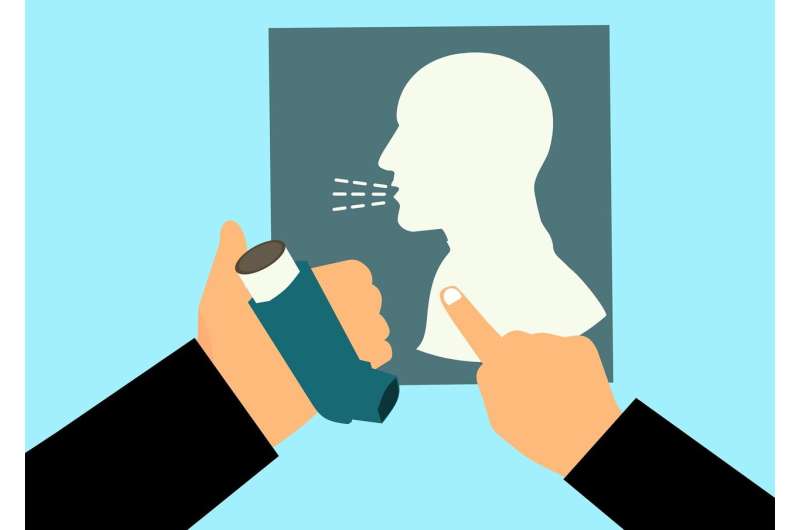
Researchers at the University of Chicago Medicine found that when patients are given personalized information about community resources to support their medical self-management, almost half said they shared the resources with at least one other person. The results, published July 31 in the Journal of the Association for Information Science and Technology, show how patients can act as important information ambassadors promoting health and welfare resources within their own communities.
The study evaluated survey data from a past clinical trial on CommunityRx, a population health tool developed in a multi-stakeholder collaboration led by University of Chicago researchers that included local community health centers and other community organizations. Through CommunityRx, patients are given personalized information about nearby community-based resources they can access to address their specific health and social needs. Dubbed a “HealtheRx,” the personalized list can provide a variety of resources, including details on where to purchase medical supplies, information on healthy cooking and fitness classes, mental health services, and even organizations that can assist with social needs, such as rent assistance.
Past research has found that the majority of patients reported the HealtheRx information was “very useful,” and nearly one in five ended up visiting a resource they learned about through the program. In this new study, conducted as part of a clinical trial, the research team zeroed in on another measure of utility: how likely participants were to share resource information with others.
“Over a decade ago, this began with a diverse group of stakeholders discussing what we could do together to improve health and economic vitality. What we discovered was that there wasn’t good information about the businesses and organizations that served our communities,” said lead author Stacy Lindau, MD, Professor of Obstetrics and Gynecology and Medicine-Geriatrics at UChicago Medicine. “This information is needed by community stakeholders, but also by all of us, so we can help ourselves and help others. We developed CommunityRx to share information with patients on community resources that could support their own health management—and as we discovered, not only did people keep and use their HealtheRx, but they also shared the information they received with others.”
In this clinical trial, nearly half of participants who received a HealtheRx reported sharing information about the resources with at least one other person; almost a quarter shared it three or more times. Individuals who actually visited or used at least one resource on their list were also more likely to share information than those who did not report visiting a resource.
“Our patients—who were mostly middle aged and older Black or African-American adults—appear to be important vectors of positive health information spread in our communities,” said Lindau. “We tend to forget that older people in our communities can play an important role in public health. But especially in the context of this ongoing pandemic, this study suggests we should be looking to older adults in our communities to see who can help spread important health messages.”
The research team was surprised to find that patients who rated themselves in poorer health were more likely to report sharing the information with others.
“It’s not just that older adults have a role to play in spreading information, but it seems like people who are sicker are more likely to share than others,” said Lindau. “This means that a subpopulation of older people who we might think of as being dependent, needing help, or even being a ‘drain’ on our society, is actually a group that is more likely to use the helpful information they receive to help others.”
Of note, participants who remembered learning about personalized mental health and counseling resources were more likely than others to share their HealtheRx information. “This suggests that those resources may be particularly hard to find in the community, and so they stand out,” said Lindau. “Or it may be that older adults in poorer health are sharing resources with caregivers who they think might need the resources themselves.”
In another portion of the study, the researchers found that in addition to patients sharing their own personalized community resource information with others, around half of the physicians and nurses who participated said that they shared HealtheRx information with their peers. Compared to non-sharers, clinicians who shared resources were three times as likely to report that they felt they were well informed about local resources their patients could access to address social needs.
The research team plans to continue investigating these trends to better understand who participants are sharing their HealtheRx information with and why and how that information sharing leads new people to use or learn about nearby community resources. They are also investigating how the CommunityRx platform, and the HealtheRx resources it provides, are used by different populations of patients and caregivers.
“This study tells us people want and need information about the resources in their communities that can help them stay healthy and manage illness,” said Lindau. “In medicine, we’re increasingly understanding that much of what determines health doesn’t happen in the clinic. It happens in our communities and our homes, and is subject to the systems and policies that influence our lives. We’re seeing that not just patients—but also doctors and nurses—want to know what the resources are in their communities. And some care enough to not just help themselves but also help others. Tech alone can’t solve health inequities. People, patients, doctors, nurses—our human desire to be helpful to others is what we need to solve this problem.”
Source: Read Full Article
